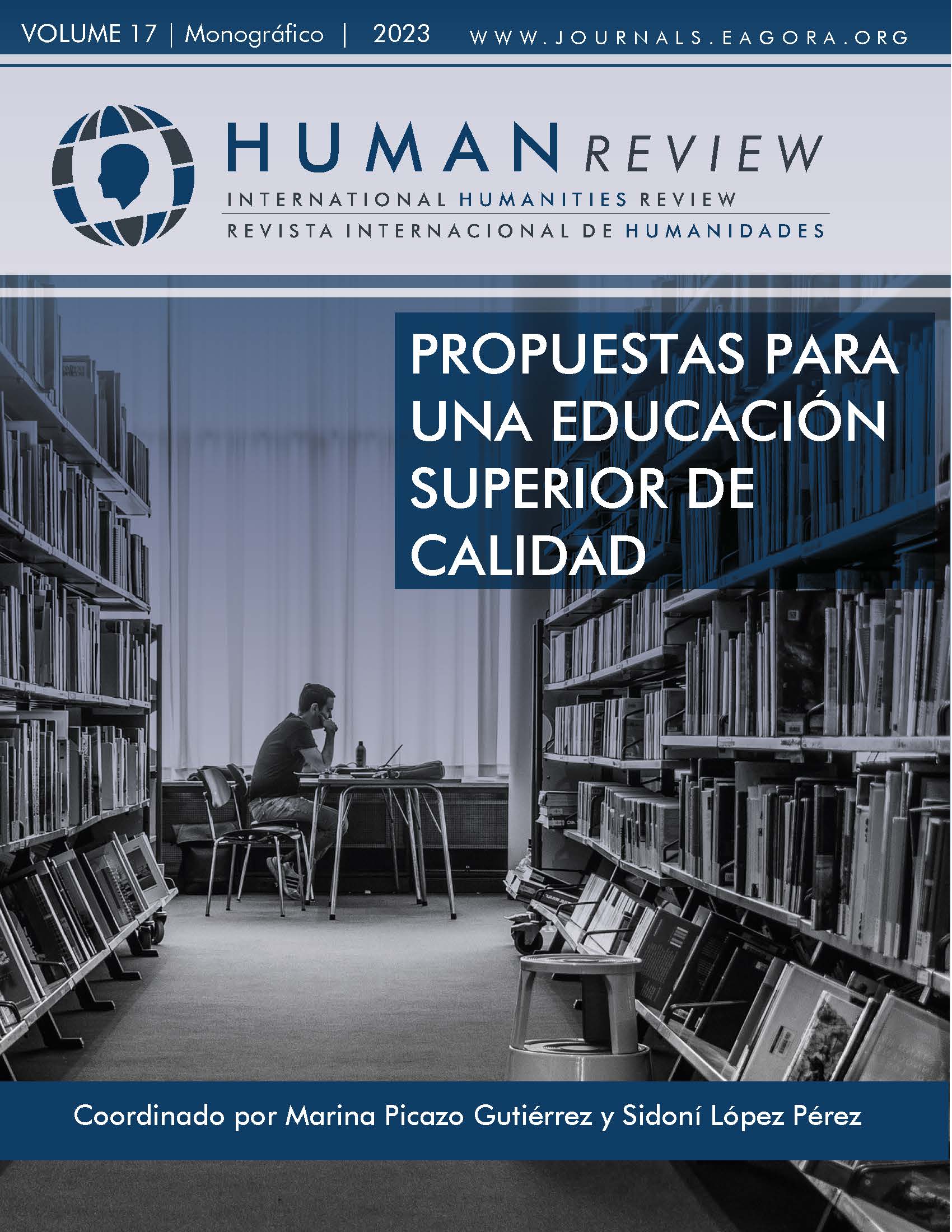Promotion of transversal skills through a final degree project
DOI:
https://doi.org/10.37467/revhuman.v12.4718Keywords:
Skills, Final Degree Project, Tutoring, Teaching Innovation, Teaching-learning, Communication skills, Management skillsAbstract
The aim of this paper is to propose an efficient and integrated model for the selection of personal skills, with the idea of inducing their acquisition among the students in the university. Defined the wide-spectrum skills to be improved, are suggested tools and processes for achieving. In particular, as applied work, the use of the Final Degree Project is offered as a guide to do it. The method consists in allowing the teacher involved in the tutoring of the TFG to choose competences that ensure the transversal learning of the students as well as the motivation of the student in the realization of the project. The results obtained suggest that it is possible through applied programmes such as the one here described to achieve improvements in the skill of the students, while at the same time could improve the final academic results.
References
Ayza, M. R., Rodríguez, M. F., Dubreuil, G. E., & Cebrián, M. D. M. (2010). La evaluación de competencias transversales en la materia trabajos fin de grado. Un estudio preliminar sobre la necesidad y oportunidad de establecer medios e instrumentos por ramas de conocimiento, Revista de docencia universitaria, 8(1), 74-100. https://doi.org/10.4995/redu.2010.6218
Battaner, E., González, C., & Sánchez, J. (2016). El trabajo de fin de Grado (TFG) en las Universidades españolas, Revista Universidad, ética y derechos, (1), 43-79.
Debreuil G. E. (2018). El papel de los TFG en la formación universitaria, Revista de docencia universitaria 16(2), 9-12. https://doi.org/10.4995/redu.2018.11175
Domingo, J. R. (2008). Formar en competencias en la universidad: entre la relevancia y la banalidad, Revista de docencia universitaria, 6(1). https://doi.org/10.4995/redu.2008.6280
Gil-Galván, R. (2018). El uso del aprendizaje basado en problemas en la enseñanza universitaria. Análisis de las competencias adquiridas y su impacto, Revista mexicana de investigación educativa, 23(76), 73-93.
Hincapié Parejo, N. F., y Clemenza de Araujo, C. (2022). Evaluación de los aprendizajes por competencias: Una mirada teórica desde el contexto colombiano. Revista De Ciencias Sociales, 28(1), 106-122. https://doi.org/10.31876/rcs.v28i1.37678
Moya, J. & Goenechea, M. (2021). Modelos para la integración de competencias personales académicas y profesionales. En Martín, M. A. & Soria, C. (Ed.), Cuestiones transversales en la innovación de la docencia y la investigación de las ciencias sociales y jurídicas (pp. 1297-1317). Dykinson.
Machado, E. F., & Montes de Oca, N. (2020). Competencias, currículo y aprendizaje en la universidad. Motivos para un debate: Antecedentes y discusiones conceptuales, Transformación, 16(1), 1-13.
Vicario, I., Martín, E., Gómez, A., & González, L. M. (2020). Nuevos desafíos en la Educación Superior: análisis de resultados obtenidos y dificultades experimentadas en la realización del Trabajo Fin de Grado de estudiantes de los Grados de Maestro de la Universidad de Salamanca, Revista complutense de educación, 31(2), 185-194. https://doi.org/10.5209/rced.62003
Viloria, H. A. & Reyes, S. (2021). Competencias tecnológicas en docentes para uso del multimedia en programas de comunicación social colombianos. Perspectivas de la Comunicación, 13(1), 219-235
Vogler, J. S., Thompson, P., Davis, D. W., Mayfield, B. E., Finley, P. M., & Yasseri, D. (2018). The hard work of soft skills: augmenting the project-based learning experience with interdisciplinary teamwork, Instructional Science, 46(3), 457-488. https://doi.org/10.1007/s11251-017-9438-9
Downloads
Published
How to Cite
Issue
Section
License
Those authors who publish in this journal accept the following terms:
- Authors will keep the moral right of the work and they will transfer the commercial rights.
- After 1 year from publication, the work shall thereafter be open access online on our website, but will retain copyright.
- In the event that the authors wish to assign an Creative Commons (CC) license, they may request it by writing to publishing@eagora.org









